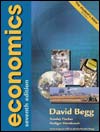 |
1 |  | 
Economists disagree over the following except __________ and
the speed at which the labour market clears |
 |
 |  | A) | how expectations are formed |
 |  | B) | the composition of aggregate demand |
 |  | C) | the possibility of hysteresis |
 |  | D) | the relative importance of the short run and long run |
 |
2 |  | 
An economist who believed that markets clear almost instantaneously would be regarded as ______________ |
 |
 |  | A) | a Keynesian |
 |  | B) | a gradual monetarist |
 |  | C) | a new Keynesian |
 |  | D) | a new classical macroeconomist |
 |
3 |  | 
New classical macroeconomists advocate that policy should __________ and __________ |
 |
 |  | A) | pursue price stability, supply-side policies |
 |  | B) | dampen the business cycle, use fiscal stimulus |
 |  | C) | reduce interest rates, expansionary monetary policy |
 |  | D) | reduce inequality, erect trade barriers |
 |
4 |  | 
Real business cycle theorists argue that ____________ can explain short and long term fluctuations in output |
 |
 |  | A) | imperfect labour markets |
 |  | B) | rational expectations |
 |  | C) | intertemporal decisions of households, firms and government |
 |  | D) | sun spot cycles |
 |
5 |  | 
If an economist suggested that government should concentrate on, long-run policies to keep inflation down and supply-side policies to raise potential output, this economist could be described as a __________ |
 |
 |  | A) | moderate Keynesian |
 |  | B) | gradualist monetarist |
 |  | C) | new Keynesian |
 |  | D) | extreme Keynesian |
 |
6 |  | 
A moderate Keynesian would not advocate ____________ |
 |
 |  | A) | stabilisation policies |
 |  | B) | supply-side policies |
 |  | C) | government intervention |
 |  | D) | non-intervention |
 |
7 |  | 
New Keynesians claim that market failure results from _________ and ___________ |
 |
 |  | A) | information problems, externalities |
 |  | B) | barriers to entry, public goods |
 |  | C) | the free rider problem, merit goods |
 |  | D) | public goods, merit goods |
 |
8 |  | 
Extreme Keynesians believe that when the economy is in recession |
 |
 |  | A) | unemployment will not last long |
 |  | B) | unemployment will cause the real wage to fall |
 |  | C) | aggregate demand will always respond to lower interest rates |
 |  | D) | the government should use expansionary fiscal and monetary policy to raise potential output |
 |
9 |  | 
New classical macroeconomists believe that government should fine-tune aggregate demand |
 |
 |  | A) | TRUE |
 |  | B) | FALSE |
 |
10 |  | 
Gradualist monetarists advocate demand management by fiscal fine tuning |
 |
 |  | A) | TRUE |
 |  | B) | FALSE |
 |
11 |  | 
New Keynesians provide macroeconomic foundations for Keynesian macroeconomics |
 |
 |  | A) | TRUE |
 |  | B) | FALSE |
 |
12 |  | 
Keynesian unemployment causes a fall in the real wage |
 |
 |  | A) | TRUE |
 |  | B) | FALSE |




 2002 A McGraw-Hill Online Learning Centre
2002 A McGraw-Hill Online Learning Centre